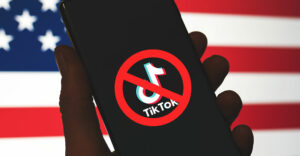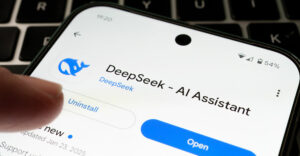Microsoft on Monday announced a new version of its Skype messaging app, along with a warning that previous versions of the software will be disabled after Sept. 1.
“As we roll out improvements, there comes a time when we must shut down older services and application versions,” wrote the Skype Team in an online post. “This is done to ensure that all customers have the best possible Skype experience, and that there are no quality or reliability issues resulting from old technology and new technology interoperating.”
Among the new features in Skype 8.0 is support for HD video and screensharing calls. Conference calls for up to 24 people can be staged in 1080p video from any device running Skype.
“High-quality conferencing is a strong feature of the new Skype,” said Paul Teich, principal analyst at DoubleHorn.
“Skype has been a walled garden,” he told TechNewsWorld. “If you’re going to do that, you have to offer higher quality than everyone else. So doing HD video will be a differentiator.”
Skype 8.0 will be available for Apple’s iPad, Microsoft also announced.
Easier Sharing
At 1080p, Skype will have an advantage over Apple FaceTime, Google Duo and Google Hangouts, and Facebook Messenger, which max out at 720p, noted Adam Preset, research director for digital workplace at Gartner.
“That might matter to some,” he told TechNewsWorld. “It might not matter much at all if your video calls happen from smartphones.”
It’s easier to grab someone’s attention in a multiperson Skype conversation through the use of @mentions. After you type the @ symbol and the name of the person you want to virtually tap on the shoulder, a notification will be sent to them.
Microsoft has added a Chat media gallery to Skype, making it easier to find photos and links included in Chats.
Sharing photos, videos and files in Skype is easier. Files as large as 300 MB can be shared just by dragging them into a conversation window.
“Skype Screensharing has been difficult compared to some of the newer apps,” Teich noted.
Encrypted Conversations
More new features include read receipts and private conversations.
With read receipts, you can tell at a glance who has read your messages. When a message is read, an avatar appears below it in Chat. The feature can be very useful in group chats for making sure everyone is up to speed in the conversation.
Private conversations is a way to encrypt calls, text messages and files, using the Signal protocol. Messages and notifications about those conversations are hidden in the chat list to keep their information private.
Profile invites and group links also have been added to Skype.
Profile invites simplify starting conversations with people who aren’t on Skype by sending your profile to them with a screen tap.
Group links speeds up the process of creating a group on Skype. Simply create the group and tap the Invite More People option to send a link to people you want to join it. Anyone receiving the link can become a member with a click.
Built-In Call Recording
Another new addition to Skype will be cheered by many of its users: call recording.
As soon as someone starts to record a call, everyone is immediately notified, so there are no surprises. Everything from the call is recorded, including video and screen shares, and everything is managed from the could.
“It’s been a pain in the butt in the past to record Skype calls,” said Bob O’Donnell, chief analyst at Technalysis Research.
“You don’t have to go looking for something else to record calls,” he told TechNewsWorld. “Now it’s built into the application itself.”
Pervasive App
One of the advantages Skype has over its competitors is its pervasiveness.
“Users can run Skype on iOS, Android, Windows, macOS, Linux, Fire OS, and via nearly any Web browser,” said Patrick Moorhead, principal analyst at Moor Insights & Strategy.
“Skype is also plugged into Office 365, the most popular productivity suite,” he told TechNewsWorld.
Although Skype is offered by a major vendor — Microsoft — it doesn’t seem to have the ecosystem attachment that its competitors have, which may hurt its ability to attract new users.
“While it comes from Microsoft today, Skype started as a standalone app for the purpose of instant communication,” noted Gartner’s Preset.
“Other products feel more like add-ons to larger vendor ecosystems,” he said.
“Ecosystems from vendors have more gravitational pull,” Preset continued. “If you have other Google products in your life, such as Android or Gmail, it’s not a big leap to add its video calling. If you have Facebook in your life, Facebook practically compels you to add its messaging and calling.”
Targeting Younger Users
When Skype was introduced in 2003, it broke significant ground in terms of capabilities and features, recalled Charles King, principal analyst at Pund-IT.
“Unfortunately, Microsoft’s development of Skype has lagged more recent entrants, like Google and Facebook, and lost sight of some larger market trends,” he told TechNewsWorld. “That’s led to a stall in Skype’s user numbers, and sparked some of the changes we’re seeing in this new version.”
The software has had performance problems, too.
“Performance has been kludgy with poor reliability and slow load times,” King said. “Those are particularly serious weaknesses for business users.”
Moreover, the “classic” version of Skype, which Microsoft will stop supporting on Sept. 1, obviously was designed for desktops, making it seriously dated for use on phones and tablets.
The redesigned interface, most of the new features and its marketing material all seemed aimed at a crowd that’s younger than the diehard Skype user. Attempting that type of shift can be treacherous waters for Microsoft.
“They’re clearly going for a younger demographic with a lot of graphical changes, but Skype made its play as a business tool, so a lot of its traditional users are older,” Technalysis’ O’Donnell explained.
“Microsoft may find itself in a position where the old users may not like the new UI and changes, and the younger crowd they’re going after may be tough to get anyway because they’re using other tools,” he pointed out. ‘It’s going to be a bit of a challenge for Microsoft to reconcile those things.”























































